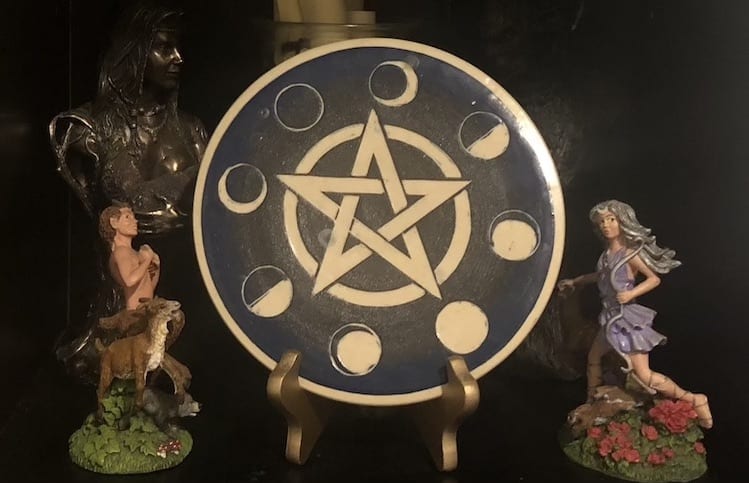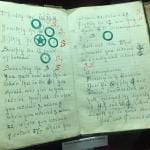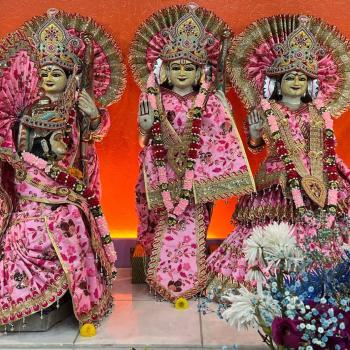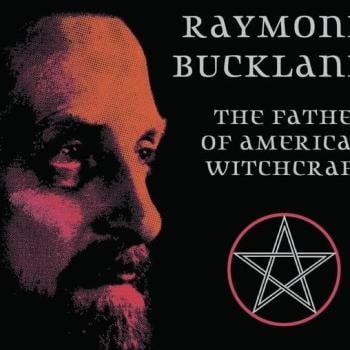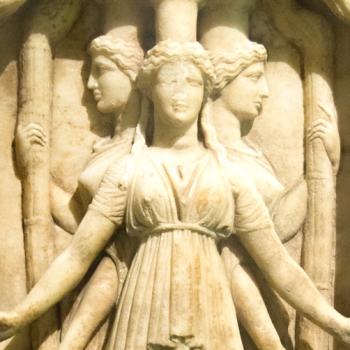In September (or possibly October) of 1939 a retired British civil-servant named Gerald Gardner (1884-1964) was allegedly initiated into a coven of English Witches. I think it’s highly likely that Gardner was initiated into something in the Autumn of that year, but we’ll never know for sure. What little evidence we have for Gardner’s initiation either comes from Gardner himself, or is highly speculative, but doesn’t the not knowing make it all a little bit more fun?
What can’t be disputed is the impact Gardner’s subsequent career as a public Witch (beginning in 1951) has had on the world. The spiritual system Gardner shared with the world has touched millions of lives over the decades, and it’s possible that the United States alone has a million or more people practicing something that looks a lot like Wiccan-Witchcraft. I think we all forget JUST HOW YOUNG both Modern Witchcraft and the greater Pagan Revival are in the scheme of things.
2019 makes it 80 years since Gardner was most likely initiated, meaning it’s a good time to take stock and look back on what Wicca is and isn’t, where it’s been and where it’s going. In September of 2018 a bunch of different groups with a very Wiccan bent to them got together for the Global Wiccan Summit. In the lead up to that the following questions below were posted online. I recently stumbled over them again and thought they were mostly worth answering. (Though as you’ll see I think I disagreed with the premise and and assertions in many of them.)
Wicca is a mystery religion, with hidden knowledge. Some say “protect the mysteries, reveal them often” and in the next sentence say, ‘that’s a secret you will know after initiation” The question for Wiccans today is… Secrecy – Do we need it?
From the very beginning Gerald Gardner thought it was important to share the Craft with others. He firmly believed that if he didn’t share it, it would be lost to future generations. In order to protect the mysteries Gardner did reveal them often, by initiating people who in turn shared their experiences with others via similar means. Back in the 1950’s initiation was the only game in town, and initiatory groups by their very nature keep secrets.
There are many people who erroneously believe that “the mysteries” exist on the printed page. They do not. To know the mysteries is to experience them. People have been printing rituals for forty-plus years now, and yet Wiccan ritual continues to surprise people. I’m of the opinion that a great deal of “secrecy” is not needed.
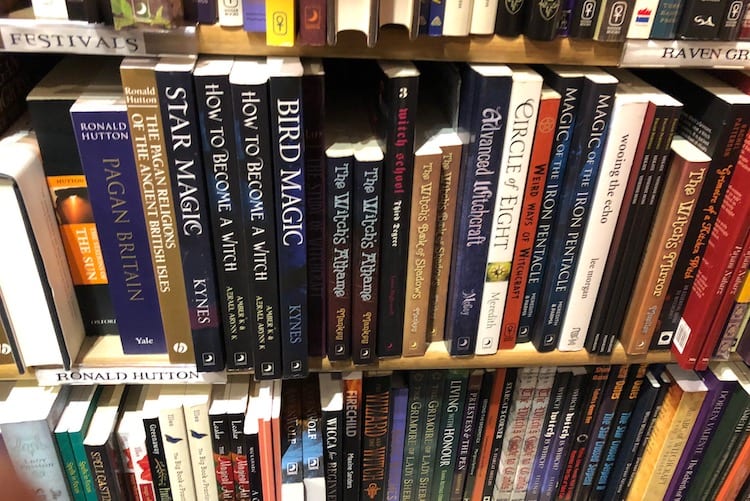
“Church or Coven”? What’s the difference? Why do you prefer one over the other? Do we need one or the other? Why? I’m interested in hearing your thoughts on this one.
Church? Never, ever! Wicca was originally meant to be practiced in a coven with a small amount of Witches, most likely a minimum of six, and probably a maximum of about twenty. Too many Witches and ritual turns into a play, too few Witches and one or two end up standing around doing nearly nothing.
Today there are probably more people who practice Wicca as solitaries than in a coven, let alone a church. Wicca broke free of the coven model to at least a small degree the moment Ray Buckland released the first book for solitary Wiccan-Witches in 1974 (The Tree: The Complete Book of Saxon Witchcraft). What Wiccans need will vary on individual preference. Today there are people perfectly happy with visiting an open circle on the high holidays and having their ritual needs met by others, and others have no desire to ritualize at all in groups. As long as one loves what they do it’s all perfectly acceptable.
I can say without question though, Wicca was never designed to be practiced in a way that resembled a church service. Wiccan ritual is engaging and interactive, it is not passive. As Wicca is best defined by its ritual practice, it has no hard and fast theology, which means sermons are most certainly out (and sermons are not a part of the ritual anyways).
Legal institutions have been helpful to the Pagan and Witch communities, and have a role to play. Legal recognition of clergy and pentacles on military headstones are the result of Pagan institutions (thanks Circle!) doing often very hard and expensive work. Many groups with legal status have thriving practices, but none of them have ritual services that resemble something like a church, and none of them truly have the money or membership to create something like my old Methodist Church that had a stage with a lighting rig for performances and a nice gym.
What is the difference between witchcraft and Wicca?” It has been said that all Wiccans are Witches, but not all Witches are Wiccans. Let’s talk about the differences. How do you separate the two?
Wicca is a type of Witchcraft, but is not the only type of Witchcraft. What type of Witch someone is, is up to them. I don’t see any need to separate the two because for many decades they weren’t separated. Gerald Gardner called what he did Witchcraft, and said he was a part of a Witch-cult, he did not call what he did Wicca. When I use the two interchangeably I don’t do so out of disrespect to anyone else, I do it because I like to think that the people I associate with are capable of figuring out context, and “witch” and “witchcraft” are words with a lot of definitions, meaning there’s a lot of context there to figure out.
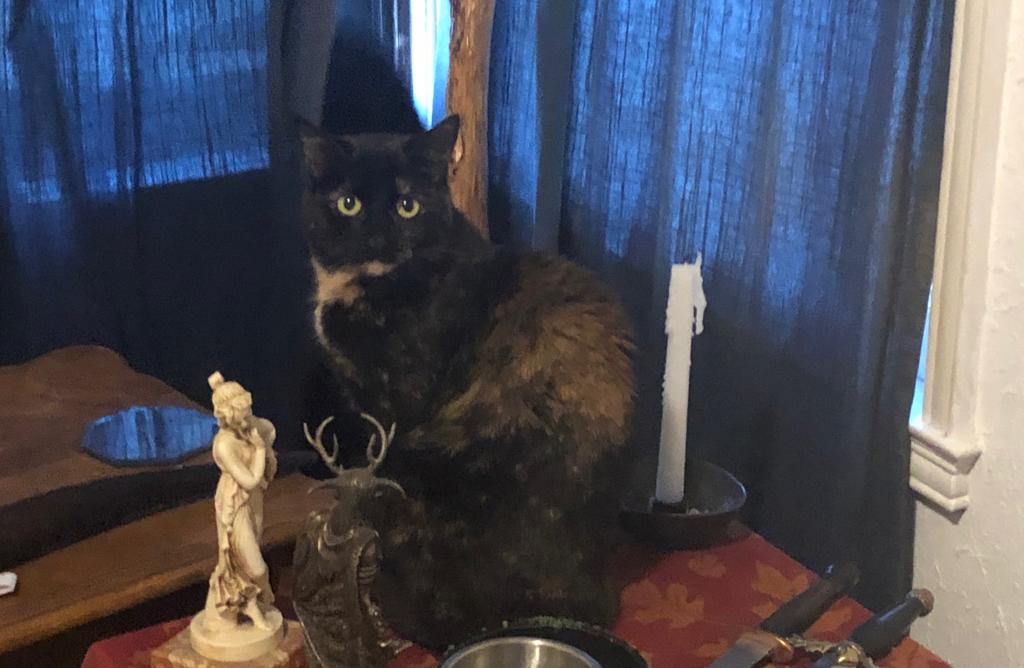
Are the Wiccan Laws still relevant? Do they need to be revised? Should Wiccan Law be a living Document?
In the late 1950’s Gerald Gardner sprung a bunch of rules on his coven known today as “The Ardanes.” He claimed they were centuries old, but were most likely made up by Gerald to exert more control over his coven. (Gerald Gardner was a man, not Wiccan Jesus, and like the rest of us, he made mistakes.) I would argue that the Ardanes were never completely relevant, though some of the material in them is useful.
Should groups have rules? Probably, especially if the group is large. I’ll freely admit that my eclectic coven has no written rules and it’s never been a problem. Everyone we invite to circle with us knows the difference between right and wrong, and that there are certain attitudes and behaviors that are unacceptable.
Any group that has written rules should have mechanisms in place to change or amend those rules as necessary. There is no one set of Wiccan Laws either, every group and tradition has their own rules and guidelines. What applies to me in my tradition may not apply to you in yours.
What do you think the role of Wicca has in regards to Job Generation and finding employment for our people. Christian ministers often help find jobs within their religious community. Should Wiccan leaders help people find jobs?
Is it my responsibility to find the people in my coven a job? Absolutely not. Should we magick the shit out of things to help our friends find jobs? Absolutely. Witchcraft gives us the power to change our circumstances, and we should use that power to benefit both ourselves and those we love and care about.
But also, most Wiccan groups are not like churches. They don’t have hundreds of members and a long rolodex full of resources. A “Wiccan leader” helping someone find a job is probably more comparable to a friend helping another friend than a Methodist Minister asking folks at the Rotary Club for job leads. Sometimes setting a friend up with a job can have serious negative consequences.
Let’s discuss Traditional Wicca v/s Modern Wicca. How do you define each? What do you feel is the main difference between the two a(nd) how do you see Wicca evolving? Are these differences helpful, hurtful, benign?
Traditional Wicca (generally referred to as BTW, British Traditional Witchcraft/Wicca) is a coven based model that passes on a Witchcraft tradition through initiations and elevations. In the 1970’s people began to move away from that method of doing things and began their own covens not linked to any groups, and sometimes individuals chose to practice alone. Everyone who is modern is doing “Modern Wicca,” and traditions generally adapt with the times too.
Some people are called to initiatory traditions, others are not, I like that there is a variety of Wiccan groups and ways to do ritual. I am a big fan of traditions, and I think there is real power within them, but I also understand that there are people who are not interested in them. It’s great that we have lots of different choices in the Wiccan community and that we can find groups and practices that appeal to us.
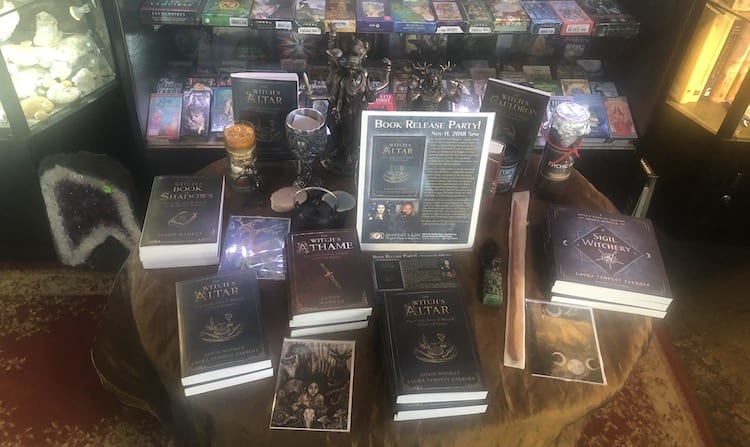
Since the very beginning Wicca has been evolving. Gardner’s earliest Witches celebrated the equinoxes and solstices on full moon closest to them instead of the actual date, this was later changed. Gardner originally referred to Samhain as “November eve (Hallowe’en)” in Witchcraft Today in 1954. Things change and evolve, that’s what good practices do. And I almost always see these changes as helpful. Wicca is open to everybody who wants to practice it, there are no gatekeepers.
Let’s discuss Gender Issues – Fluidity – Androgyny. How do you feel about Wicca’s position in dealing with Gender issues? Wicca is a fertility religion with some pretty dogmatic roots about what is male and female. What are you thoughts on how it’s handling today’s challenges with Gender?
Wicca is NOT a fertility religion. Wicca is a magickal religion. Yes, for many people Wicca is a loving walk with Mother Nature and a form of nature religion or nature worship, but in 2019 most people I know have moved beyond “fertility religion.” I like that the earth is fertile, the only people I want to be fertile are friends who are actively trying to have a baby.
Wiccan-Witchcraft was (permanently) established in the 1950’s long before people began to accept (or even think about) gender as being fluid, and back then people also thought smoking was healthy and that lobotomies were a good thing. Obviously, times have changed. My Wiccan practice is one that is ever growing, it’s not stagnant, and I accept people for who they are, period. Most Wiccans I know do the same. And yes, a lot of early Wicca books spent time on gender polarities, but I’ve never seen any long treatises arguing just how to define male and female.
Anyone can practice Wicca. There are no requirements to identify with a certain gender or any gender. Those who argue otherwise should join the rest of us in the 21st Century.


